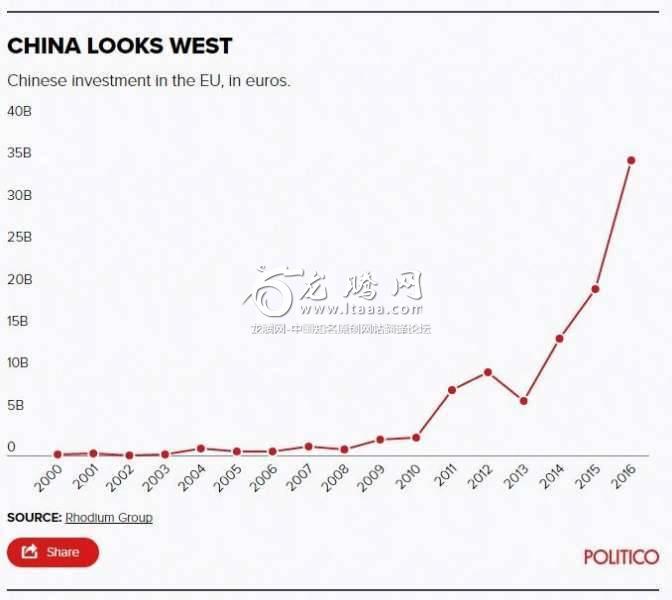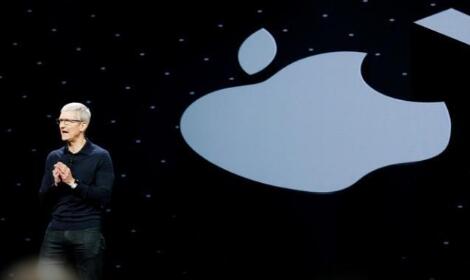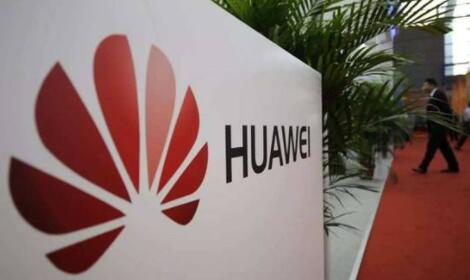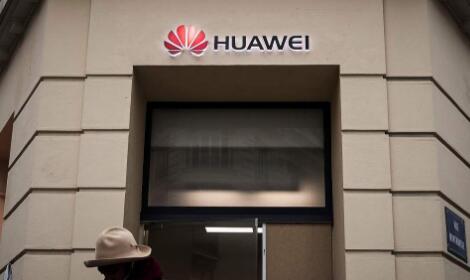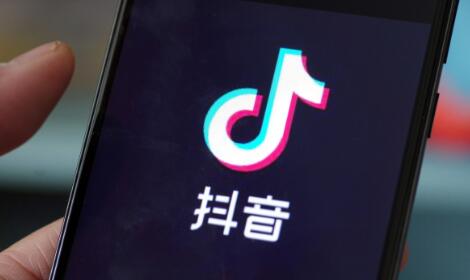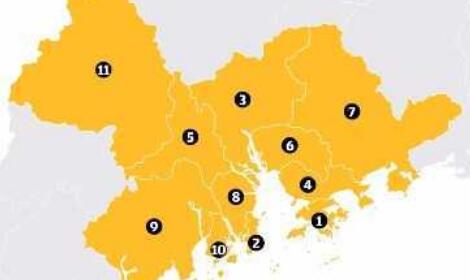龙来了!——中国投资受经济危机冲击的成员国,扩大了北京在欧盟高层的影响力 [联合国媒体]
这仅是措辞上的小小改变。但当涉及到整个欧洲政策时,措辞上的小小变化就能显示出方向的巨大变化。通过这种情况,我们知道北京方面可能已经插手(欧盟文件的)起草了。问题的焦点是在6月的欧盟理事会峰会的总结中,一个小而关键的段落重新措辞。参与起草工作的官员表示,这一变化是中国政府影响欧盟决策方式的最明显例证之一。
It was a small change in language. But when it comes to European policy, a small change in language can indicate a large change in direction.
这仅是措辞上的小小改变。但当涉及到整个欧洲政策时,措辞上的小小变化就能显示出方向的巨大变化。
And in this case, Beijing may have had a hand in the writing.
通过这种情况,我们知道北京方面可能已经插手(欧盟文件的)起草了。
At issue is the rephrasing of a small but crucial passage in the conclusions of a European Council summit in June. The change, say officials involved in its drafting, is one of the clearest examples to date of a shift in the way Beijing influences EU decision-making.
问题的焦点是在6月的欧盟理事会峰会的总结中,一个小而关键的段落重新措辞。参与起草工作的官员表示,这一变化是中国政府影响欧盟决策方式的最明显例证之一。
China has long used the size of its market as leverage in negotiations with Europe. Now, say critics of the country’s trade and human rights policies, Beijing has found its way into the room at the European Council, where national leaders gather to make decisions.
长期以来,中国一直将其市场规模作为与欧洲谈判的筹码。现在,批评中国贸易和人权政策的人士表示,北京已经进入了欧盟理事会的会议室,在那里,(欧盟)各成员国领导人聚在一起做决定。
“There are several [countries] that profited in the last months and years from Chinese direct investments,” said Matthias Machnig, German state secretary for economic affairs and a vocal proponent of EU-wide restrictions on Chinese takeovers. “And now the Chinese exerted pressure on these countries.”
“在过去的几个月和几年里,有几个国家已从中国的直接投资中获利,”Matthias Machnig说,他是德国经济事务部长,曾直言赞成限制中国在欧盟范围内的收购。“现在中国对这些国家施加了压力。”
At the June Council summit, French, German and Italian leaders — seeking to prevent Chinese firms from snatching up companies in strategic sectors — wanted EU leaders to jointly call on the European Commission to examine “ways to screen investments from third countries.”
在6月的欧盟理事会峰会上,法国、德国和意大利的领导人呼吁各成员国,希望欧盟委员会审查“从第三国投资的方式”,以防止中国企业在战略领域抢购欧洲企业。
That line would have paved the way for the Commission to monitor and potentially block foreign takeovers of Europe’s most cherished companies — high-tech firms like German industrial robotics maker Kuka, which was bought last year by a Chinese manufacturer of washing machines and rice cookers.
这一做法将为欧盟委员会的监管铺平道路,并可能阻止外资收购欧洲最受珍视的那些公司——像德国工业机器人制造商库卡这样的高科技公司,在去年就被一家中国的洗衣机和电饭煲制造商收购。(美的:???空调呢?)
The protectionist language appeared in early drafts but did not make it into the summit’s final conclusions — to the chagrin of France, Germany and Italy, which are used to getting their way when they call for something jointly. Instead, it was replaced with watered-down wording welcoming an existing Commission initiative to “analyze investments from third countries in strategic sectors.”
这种保护主义的言论出现在初期的草案中,但并没有进入峰会的最终议程——这让法国、德国和意大利感到懊恼,它们习惯呼风唤雨,获得自己想要的结果。取而代之的是打了折扣的措辞——当前的友好的委员会倡议,“分析第三国对战略部门的投资”。
The effort was derailed by an ad hoc coalition of smaller countries that included traditional champions of free trade like Finland, Sweden and the Netherlands. They were backed by Portugal, Greece, Malta and the Czech Republic, all of which have received high levels of Chinese investment, according to two trade attachés and an ambassador from a Western EU country present at the negotiations.
这一努力是被一些较小国家的临时联盟所破坏的,这些国家包括传统的自由贸易捍卫者,如芬兰、瑞典和荷兰。他们还得到了葡萄牙、希腊、马耳他和捷克共和国的支持。根据双方的贸易协定和一位来自西欧国家的大使的说法,这些国家都得到了中国的大笔投资。
Said Abdu, a member of the Swedish parliament’s business and trade committee for the Liberals party, said Swedish businesses he spoke to generally welcomed a push for investment screening. Sweden’s opposition in the Council “could be linked to the fact that Sweden’s two big carmakers [NEVS and Volvo] are owned by Chinese investors,” Abdu said.
Said Abdu是瑞典国会商业和贸易委员会的成员,他表示和他谈过的那些瑞典企业普遍欢迎对投资进行筛选。Abdu说,瑞典在欧盟峰会之所以反对“可能与瑞典的两大汽车制造商【萨博和沃尔沃】都由中国投资者持有的事实有关。”
A Western European trade official who did not attend the negotiations but was briefed on them said the critics of the screening proposal “threatened, or rather indicated, that if the plan went through they would have to be compensated financially” for the loss of investment they would have otherwise received.
一名没有参加谈判的西欧贸易官员做了简要介绍——这些国家批评了审查的提议说“感到了威胁,或更确切地说,如果计划通过,他们将必须要在经济上得到补偿”,否则他们本应得到的投资将会减少。
“Greece explicitly mentioned China,” the official said.“
希腊明确地提到了中国,”这名官员表示。
Beijing has never shied from seeking to influence European decision-making. But its main threat traditionally relied on the size of its market. If the EU was planning a law that Beijing didn’t like, China would threaten to stop buying French wines or German cars.
北京从不回避他一直在寻求影响欧洲的决策。但传统上,它的主要威胁依赖于其巨大的市场规模。如果欧盟计划出台一项北京不喜欢的法律,中国将威胁停止购买法国葡萄酒或德国汽车。
When, in 2012, the EU was planning to charge all airlines, including foreign airlines flying to the EU, for carbon emitted during flights, China threatened to stop buying planes from Airbus. France, Germany and Britain, where Airbus is a big employer, then pressured the Commission to freeze its proposal to include aviation in the emission trading system.
2012年,欧盟计划向包括飞往欧盟的外国航空公司在内的所有航空公司征收碳排放费,而中国则威胁要停止从空客购买飞机。在法国、德国和英国,空客可是一个大雇主,于是它迫使欧盟委员会冻结了包括航空方面的污染排放税的提议。
More recently, China has threatened Germany’s car industry with an electric car quota that would hurt sales of Mercedes, BMW, Audi and VW to one of their biggest markets. As POLITICO reported, the threat is linked to the EU’s anti-dumping rules, which Brussels is hoping to pass by the end of the year.
最近,中国又以电动汽车配额来威胁德国汽车行业,这将损害梅赛德斯、宝马、奥迪和大众的销售,影响它们最大的市场之一。据POLITICO报道,这一威胁与欧盟的反倾销法案有关,欧盟希望在今年年底前通过反倾销法案。
According to a senior Commission official working on the reform, it became necessary to soften the rules “because of pressure from China.”
根据一名负责改革的高级官员的说法,我们必须要削弱“由于来自中国的压力”这一规则了。
Now — as June’s Council meeting showed — Beijing has found a new way to exert leverage on the Continent.
现在,正如6月份的理事会会议所显示的那样——北京已经找到了一种新的方式来对欧洲大陆施加影响了。
“There are new dividing lines in the Council that are not necessarily the traditional ones between Northern, liberal and Southern, protectionist countries,” said André Sapir, a senior fellow at the Bruegel think tank. “Southern countries used to favor a harder line against China, but then came the crisis.”
“在理事会中有了新的分界线,它不再是传统的北方自由主义国家和南部的贸易保护主义国家之间的对立了,”布鲁格尔智库的高级研究员AndréSapir说。“南方国家过去倾向于对中国采取更强硬的立场,但随后爆发了经济危机。”
Over the last decade, the EU has become a top destination for Chinese investors, who have bought banks, ports, energy companies and high-tech manufacturers across the bloc, from the Greek peninsula to the outskirts of Dublin, Ireland.
在过去10年里,欧盟已成为中国投资者的首选目的地,从希腊半岛到爱尔兰都柏林的郊区,他们购买了银行、港口、能源公司和高科技制造商。
A survey by the consultancy EY said the Chinese spent 75 billion in European acquisitions and investments in 2016. Another study showed that China invested as much in Europe in 2016 as it did in the 10 previous years combined.
安永咨询公司的一项调查显示,中国在2016年斥资750亿欧元收购和投资欧洲企业。另一项研究显示,2016年中国在欧洲的投资总额与前10年的总和相当。
Tackling Chinese investments is “the next big battle,” said Axel Eggert, director general of Eurofer, the European Steel Association. “This is not just about stealing key technologies. It’s about gaining political control.”
欧洲钢铁工业协会的总干事Axel Eggert说,处理中国的投资是“下一场大战。他们不仅仅是要窃取关键技术,还要操纵我们的政治。”
“China is casting out the net to gain influence in EU countries,” he added.
他补充说:“中国正在广撒网,以在欧盟国家获得影响力。”
Beijing’s influence, say China’s critics, can be seen in a recent series of human rights votes.
中国批评者表示,北京的影响力可以在最近的一系列人权投票中看到。
In June this year, Greece blocked an EU statement at the United Nations criticizing China’s human rights record — months after China’s COSCO Shipping took over Greece’s port of Piraeus.
今年6月,希腊阻止了欧盟在联合国发表一份批评中国人权记录的声明。几个月前,中国远洋运输集团公司接管了希腊的比雷埃夫斯港。
(中国在欧洲历年投资规模增长图)
Last March, Hungary — another country with heavy Chinese investment — derailed the EU’s consensus to sign a joint letter denouncing the reported torture of detained lawyers in China.
去年3月,另一个有着大量中国投资的国家,匈牙利——反对欧盟签署一份联合公开信,以谴责中国对拘留的律师进行刑讯逼供。
And in July 2015, Greece, Hungary, Croatia and Slovenia fought hard in Brussels to avoid a direct reference to Beijing in an EU statement about a court ruling that struck down China’s legal claims over the South China Sea.
2015年7月,希腊、匈牙利、克罗地亚和斯洛文尼亚在布鲁塞尔进行了艰苦的斗争,以避免欧盟在一份声明中直接提及北京方面的问题——关于一项推翻中国对南中国海的法律主张的裁决。
“China’s strategy in Europe is divide and rule,” said Franck Proust, a French MEP and the author of a parliamentary report on investment screening in Europe. “And it’s working because the 27 EU member states are incapable to remain in solidarity with each other.”
“中国在欧洲的战略是分以制之,”法国议员,《欧洲投资审查报告》作者Franck Proust说:“这很有效,因为27个欧盟成员国无法永远保持团结一致。“
It’s not that Beijing is dictating policy in Lisbon, Prague, Budapest or Athens, Sapir said.
Sapir说,这并不表示北京直接制定里斯本、布拉格、布达佩斯或雅典的政策。
But as those countries have become dependent on Chinese investment, they have also become increasingly reluctant to take stances that would anger Beijing.
但随着这些国家变得依赖中国的投资,它们也越来越不愿意采取可能激怒北京的姿态。
“In Portugal and Greece, Chinese investment has risen after the crisis,” he added. “And that has played a role in shifting these lines.”
“在葡萄牙和希腊,中国的投资在经济危机之后已经增加了很多,”他补充道。“这在他们重新站队时起了很大的作用。”
The European Council’s failed effort to lay the ground for EU-wide investment screening is the first concrete example in which China is suspected to have used its investment influence to alter a core EU initiative.
欧盟理事会未能为欧盟范围内的投资审查打下基础,这是中国被怀疑利用其投资影响力来改变欧盟的核心计划的第一个具体事例。
The push for restrictions on Chinese investment started with a letter sent by France, Italy and Germany in February, asking the Commission to work on a screening tool that grants “additional protection based on economic criteria taking into account, and with reference to, the Commission’s expertise.”
推动对中国投资的限制始于今年2月法国、意大利和德国发出的一封信函,要求欧盟委员会“利用委员会的专业知识”研究出一种审查手段以达成“基于经济条件的额外保护措施”。
As a model for the EU, French diplomats pointed to the United States, where a government panel aggressively vets and sometimes blocks foreign purchases of strategic assets — most notably by China.
作为欧盟的常用模式,法国外交官指出了美国的例子。在美国,有一个政府小组积极审查,有时还会阻止外国投资者购买战略资产——最主要是中国。
The debate has been vigorous, with Finland’s trade minister warning that introducing protectionist measures could spark a trade war. But ultimately, the proposal for an EU-level screening mechanism was derailed in the European Council.
这场争论一度很激烈,芬兰贸易部长警告说,引入贸易保护主义措施可能引发一场贸易战争。最终,推行欧盟层面审查机制的提议在欧盟理事会被否决了。
In September, European Commission President Jean-Claude Juncker proposed an investment screening law — but it wasn’t what France, Italy and Germany had in mind at the Council.
今年9月,欧盟委员会主席Jean-Claude Juncker提出了一项投资审查法案,但这并不是法国、意大利和德国在理事会所提出的。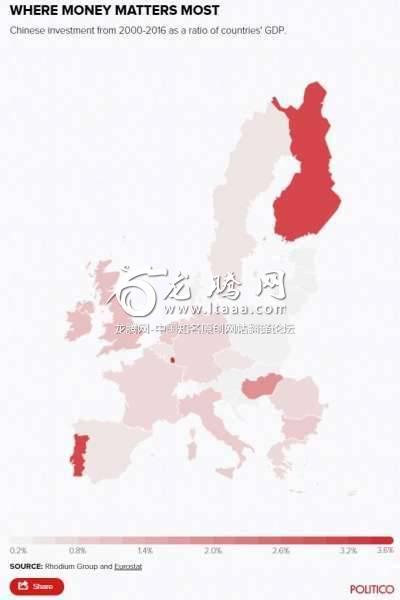
(2000-2016年中国投资占该国GDP比例图)
Instead of vetting takeovers on the EU level, the law would only give guidance to national governments, which can already vet and block takeovers of strategic companies. Crucially, it would not give Brussels the power to force countries to take action.
该法律不在欧盟层面对收购进行审查,只是给各国政府提供指导,这些国家政府可以自己决定是否审查和阻止对战略公司的收购。关键就在于此,它不能让欧盟有力量迫使各国采取行动。
Germany welcomed the proposal as a tool that “widens our decision-making power,” according to the spokesperson for Berlin’s economy ministry. But France and Italy called for broader powers for the EU, arguing that officials in Brussels should be put in charge of vetting Chinese takeovers.
德国经济部发言人表示德国欢迎这项提议,并称这是“扩大我们决策权”的一种手段。但法国和意大利呼吁欧盟应拥有更广泛的权力,他们认为布鲁塞尔的官员有权力审查中国的收购。
Beijing has repeatedly played down concerns about Chinese investments in Europe. In September, Chinese foreign ministry spokesman Lu Kang criticized Junker’s proposal. “Practicing trade and investment protectionism for short-term interests, from a long-term perspective, the losses will outweigh the gains,” he told a daily news briefing in Beijing. The EU must “avoid putting out wrong, confusing and negative information to the outside world.”
北京则一再淡化外界对中国在欧洲投资的担忧。今年9月,中国外交部发言人陆慷对Junker的提议进行了批评。他在北京的例行新闻发布会上表示:“从长远角度来看,为短期利益实践贸易和投资保护主义,损失将超过收益。”欧盟必须“避免向外界发布错误的、令人困惑的和负面的信息”。
The Chinese Embassy and the Chinese Ministry of Commerce’s attaché in Brussels did not reply to a request for comment on this article. Nor did the China Investment Corporation in Beijing.
中国驻布鲁塞尔大使馆和中国商务部驻布鲁塞尔办事处没有回复记者就这篇文章置评的请求。北京中投公司也没有评论。
Bail-out blues
In the wake of the June Council summit, Germany has pointed to Portugal specifically as an example of an EU country that is blocking EU legislation that Beijing opposes, pointing to its sale of banks and energy grids to Chinese investment groups.
在6月的欧盟理事会峰会之后,德国指出葡萄牙是一个典型的例子,作为一个欧盟国家却因为北京的反对而阻止欧盟法律的颁布,并指出其向中国投资集团出售银行和能源网络。
Portuguese officials are actively wooing their Chinese counterparts in a bid to attract more money to an economy that is still in dire need of investment. Lisbon has sought to attract Chinese money, offering “golden visas” and granting residency permits in exchange for investments in real estate, cultural or artistic activities or small and medium-sized companies.
葡萄牙官员正积极争取中国方面的支持,以吸引更多的资金,而中国经济目前仍亟需投资。里斯本方面一直在寻求吸引中国资金,提供“黄金签证”,并授予居留许可,以换取其对房地产、文化或艺术活动领域及中小企业的投资。
In July, the two countries signed a memorandum stressing Portugal’s willingness to participate in the “One Belt One Road” initiative, a program designed to increase Chinese exports to the EU, and China’s aviation group HNA announced direct flights between Beijing and Lisbon. Chinese state media rhapsodized that bilateral relations with Lisbon were the “best in history.”
今年7月,两国签署了一份备忘录,强调葡萄牙愿意参与“一带一路”计划,该计划旨在增加中国对欧盟的出口,而中国海航集团则宣布了北京与里斯本之间的直飞航班。中国官方媒体对此大肆宣扬,称与里斯本的双边关系处于“历史最佳”时期。
Portugal has good reason to not want to cut off the money flow, said one senior EU diplomat from a Southern country. The investments went a long way to help rebuild the Portuguese economy, and additional influxes inject new money into Lisbon and Porto.
“葡萄牙有充分的理由不希望切断现金流,”一位来自欧洲南部国家的欧盟高级外交官表示:“这些投资在帮助重建葡萄牙经济方面有很大帮助,它还带来额外的影响,影响其他人为里斯本和波尔图注入新的资金。”
Still, many in the country find German accusations of selling out to the Chinese galling, given that it was politicians in Berlin that urged Portugal to sell off assets and state-owned companies to the highest bidder just five years ago.
尽管如此,该国的许多人还是对德国人指责其向中国出卖自己感到屈辱,因为柏林的政界人士在五年前还曾敦促葡萄牙将国有资产和企业出售给出价最高者。
“Yes, it is ironic,” said one senior Portuguese official, when asked about the German accusations. By refusing fiscal transfers within the EU, Berlin had driven poorer EU countries into the arms of Chinese investors.
一名葡萄牙高级官员在被问及德国的指控时表示:“是的,这很讽刺。正是由于拒绝欧盟内部的财政援助,柏林将较贫穷的欧盟国家推入了中国投资者的怀抱。“
Portugal cultivateda bond with the East Asia region that goes back to Portuguese traders settling in Macau in the 16th century. But in recent years, this relationship has been turned upside-down, with Chinese state-owned companies now establishing a foothold in Lisbon.
葡萄牙与东亚地区建立联系可以追溯到16世纪葡萄牙商人在澳门定居。但近年来,这种关系被颠倒了,中国国有企业在里斯本建立了一个立足点。
“They have taken control of our major assets,” said Sérgio Martins Alves, secretary-general of the Portugal-China Chamber of Commerce and Industry.
“他们已经控制了我们的主要资产,”葡萄牙-中国工商业协会秘书长Sérgio Martins Alves说。
“Ten years ago we were building an airport in Macau — we were building an entire economic infrastructure there,” added Alves, who advised former Portuguese Prime Minister José Sócrates on diplomatic affairs up until June 2011. “Now, it is the opposite.”
“十年前,我们还在澳门建设了一个机场——我们以前建设了那里的整个经济基础设施,”Alves补充道,他曾在2011年6月前担任葡萄牙前总理José Sócrates的外务顾问。“现在,情况正好相反。”
Many of those acquisitions were required by a debt restructuring program following the eurozone crisis — on which Germany insisted before lending Portugal the credits that saved it from collapse.
在欧元区危机之后的债务重组计划中,许多收购都是需要进行的。在要向葡萄牙提供信贷之前,德国曾坚持将其从崩溃中拯救出来。
Under the terms of the bailout EU countries negotiated with Portugal in 2011, the state sold off key assets and forced banks to restructure their debt in return for a 79-billion loan from the International Monetary Fund, the European Commission and the European Central Bank — then known as the Troika.
在2011年,在葡萄牙申请欧盟国家援助期间,政府就出售了关键资产,迫使银行重组债务,以换取被称为“三驾马车”的国际货币基金组织(imf),欧盟委员会(European Commission)和欧洲央行(ecb)的790亿贷款。
Acquisitions of critical companies in Portugal came “in direct response to the Portuguese government reconsidering its budgets and selling off stakes in order to make money available,” said Hinrich Voss, an associate professor specialized in Chinese foreign investment at the University of Leeds.
他们对葡萄牙关键公司进行兼并,“直接回复葡萄牙政府重新考虑其预算,并出售股份以获得充足资金,”利兹大学研究中国对外投资的副教授Hinrich Voss说。
“Chinese investors increasingly deployed capital in economies that were severely affected by the financial crisis,” says a report from Baker & McKenzie, a law firm. “The share of Portugal, Ireland, Italy, Greece, Spain and Cyprus in total Chinese inbound EU investment grew from 8 percent in 2009-2011 to 33 percent in 2012- 2014,” according to a report by the European Trade Union Confederation based on data from Baker & McKenzie and Rhodium Group.
贝克麦坚时国际律师事务所的一份报告称:“中国投资者越来越多地将资金投入到受到金融危机严重影响的经济体中。“ 欧洲贸易联盟基于贝克麦坚时和荣鼎集团数据的一份报告显示:”葡萄牙、爱尔兰、意大利、希腊、西班牙和塞浦路斯在中国对欧盟的总投资中所占的份额从2009-2011年的8%增长到2012-2014年的33%”。
“In particular, Chinese investors targeted opportunities arising from the privatization of state-related industries such as utilities and transportation infrastructure,” the report points out.
报告指出:“特别之处在于,中国投资者瞄准了公共事业和交通基础设施等与政府相关的行业私有化所带来的机遇。”
The list of takeovers and acquisitions runs long and points to a dramatic shift of ownership of Portugal’s banking, insurance, energy and infrastructure businesses.
收购和兼并的清单很长,这表明葡萄牙的银行、保险、能源和基础设施业务的所有权正发生着戏剧性的转变。
“We just sold to the guys offering most money — and evidently they were always Chinese in that period,” Alves said.
Alves说:“我们只是卖给了那些提供最多钱的人——显然,在这期间一直都是中国人出价最高。”
Observer
By selling its infrastructure and companies to China EU is committing suicide. It is unbelievable that insane EU liberal politicans such as Memebers of EU Parliament, Macron, Merkel, communist Tszipras etc and dictator EU Commisssion do not see that.
将其基础设施和公司出售给中国,欧盟这是在自杀。令人难以置信的是,诸如马克龙、默克尔等欧盟议会成员以及欧盟委员会的独裁者都没看到这一点。
wow
Just another example of EU ‘unity’
Six speed europe! (customs/efta (kind of)/eea/eu/ez/ez franco-german) Woop! full steam ahead! Altogether now… oh wait a minute…
这是欧洲“团结”的又一个例子
六个措施让欧洲更快发展!(统一关税/欧洲自由贸易联盟/欧元经济区/欧盟/自由经济区/德法两国自由经济区)哇!全速前进!就在现在……噢,等等。
pexit
Nobody forced German’s to sold KUKA…it’s only their lack of strategic vision and love of money that have this buy possible…and now they want that all EU countries protect their industry…long live one way “solidarity”…
没有人强迫德国人出售库卡……正是由于他们缺乏战略眼光和对金钱的热爱使出售成为可能……现在他们却希望所有欧盟国家都保护自己的产业……长久以来,这都是他们“团结”的方式。
Case123
Hahaha the West went round the world to grab companies in the name of globalization and free trade when Asian economy was weak
Now rich Asian and Chinese did what the West have done all kind of protectionism and cry foul.
The white is the most hypocritical race on earth
哈哈哈,当亚洲经济疲软时,西方世界以全球化和自由贸易的名义在全球范围内抢购公司
现在,富有的亚洲人和中国人做了西方国家所做的,各种保护主义却出现了,并大喊犯规。
白人是地球上最虚伪的种族。
Case123
White is losing big of the globalisation game designed by them.
白人在他们自己设计的全球化游戏的大背景中损失惨重。
版权声明
我们致力于传递世界各地老百姓最真实、最直接、最详尽的对中国的看法
【版权与免责声明】如发现内容存在版权问题,烦请提供相关信息发邮件,
我们将及时沟通与处理。本站内容除非来源注明五毛网,否则均为网友转载,涉及言论、版权与本站无关。
本文仅代表作者观点,不代表本站立场。
本文来自网络,如有侵权及时联系本网站。
图文文章RECOMMEND
热门文章HOT NEWS
-
1
他们认为,协商失败的峰会实际上符合中国的利益,而且北京的影响力将增加,因...
- 2
- 3
- 4
- 5
- 6
- 7
- 8
- 9
- 10
推荐文章HOT NEWS
-
1
这是中国中部河南省郑州的一个普通的星期六。富士康工厂大楼上空笼罩着...
- 2
- 3
- 4
- 5
- 6
- 7
- 8
- 9
- 10
